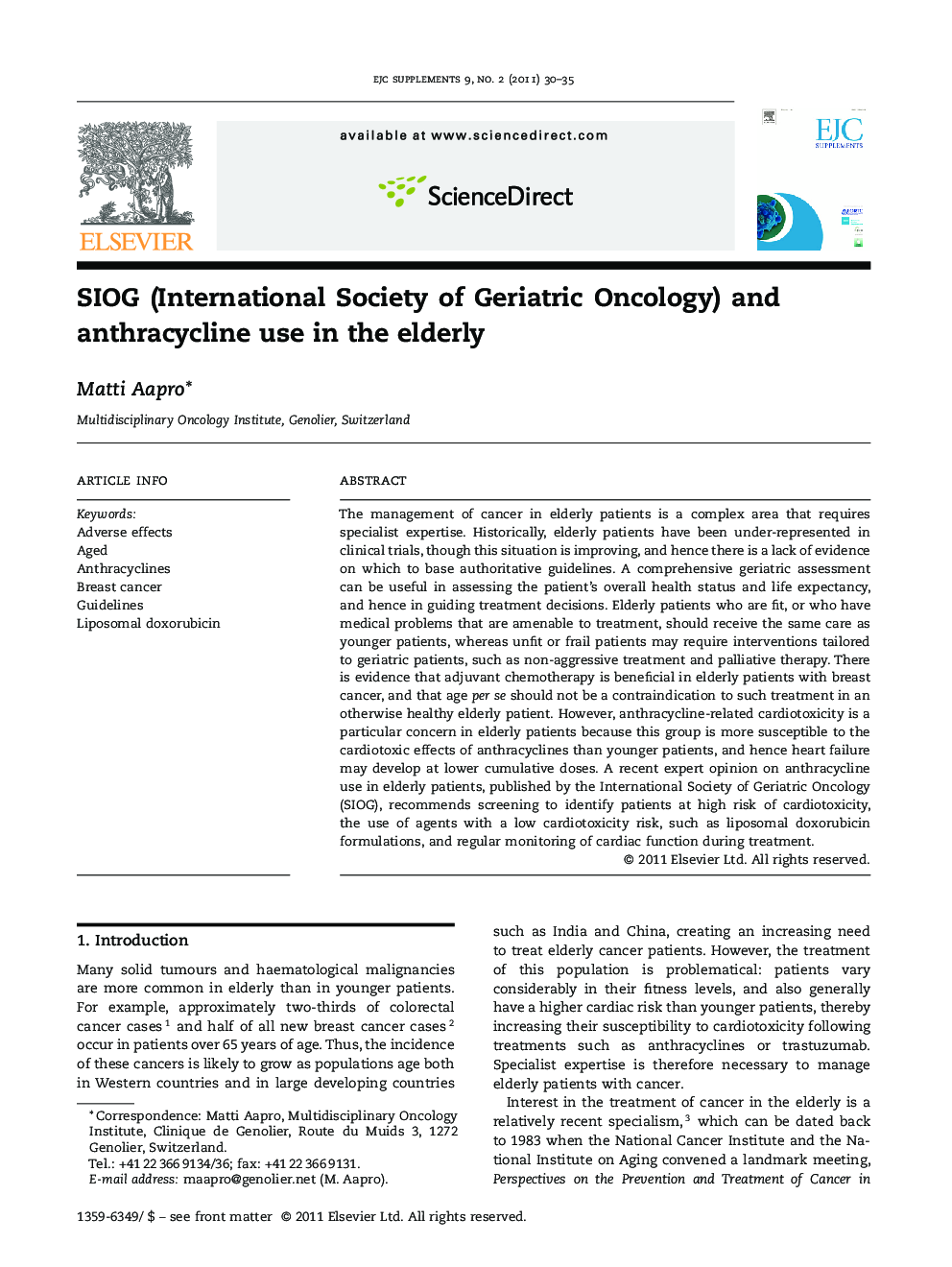| کد مقاله | کد نشریه | سال انتشار | مقاله انگلیسی | نسخه تمام متن |
|---|---|---|---|---|
| 2127885 | 1547596 | 2011 | 6 صفحه PDF | دانلود رایگان |

The management of cancer in elderly patients is a complex area that requires specialist expertise. Historically, elderly patients have been under-represented in clinical trials, though this situation is improving, and hence there is a lack of evidence on which to base authoritative guidelines. A comprehensive geriatric assessment can be useful in assessing the patient's overall health status and life expectancy, and hence in guiding treatment decisions. Elderly patients who are fit, or who have medical problems that are amenable to treatment, should receive the same care as younger patients, whereas unfit or frail patients may require interventions tailored to geriatric patients, such as non-aggressive treatment and that age per se should not be a contraindication to such treatment in an otherwise healthy elderly patient. However, anthracycline-related cardiotoxicity is a particular concern in elderly patients because this group is more susceptible to the cardiotoxic effects of anthracyclines than younger patients, and hence heart failure may develop at lower cumulative doses. A recent expert opinion on anthracycline use in elderly patients, published by the International Society of Geriatric Oncology (SIOG), recommends screening to identify patients at high risk of cardiotoxicity, the use of agents with a low cardiotoxicity risk, such as liposomal doxorubicin formulations, and regular monitoring of cardiac function during treatment.
Journal: European Journal of Cancer Supplements - Volume 9, Issue 2, October 2011, Pages 30-35